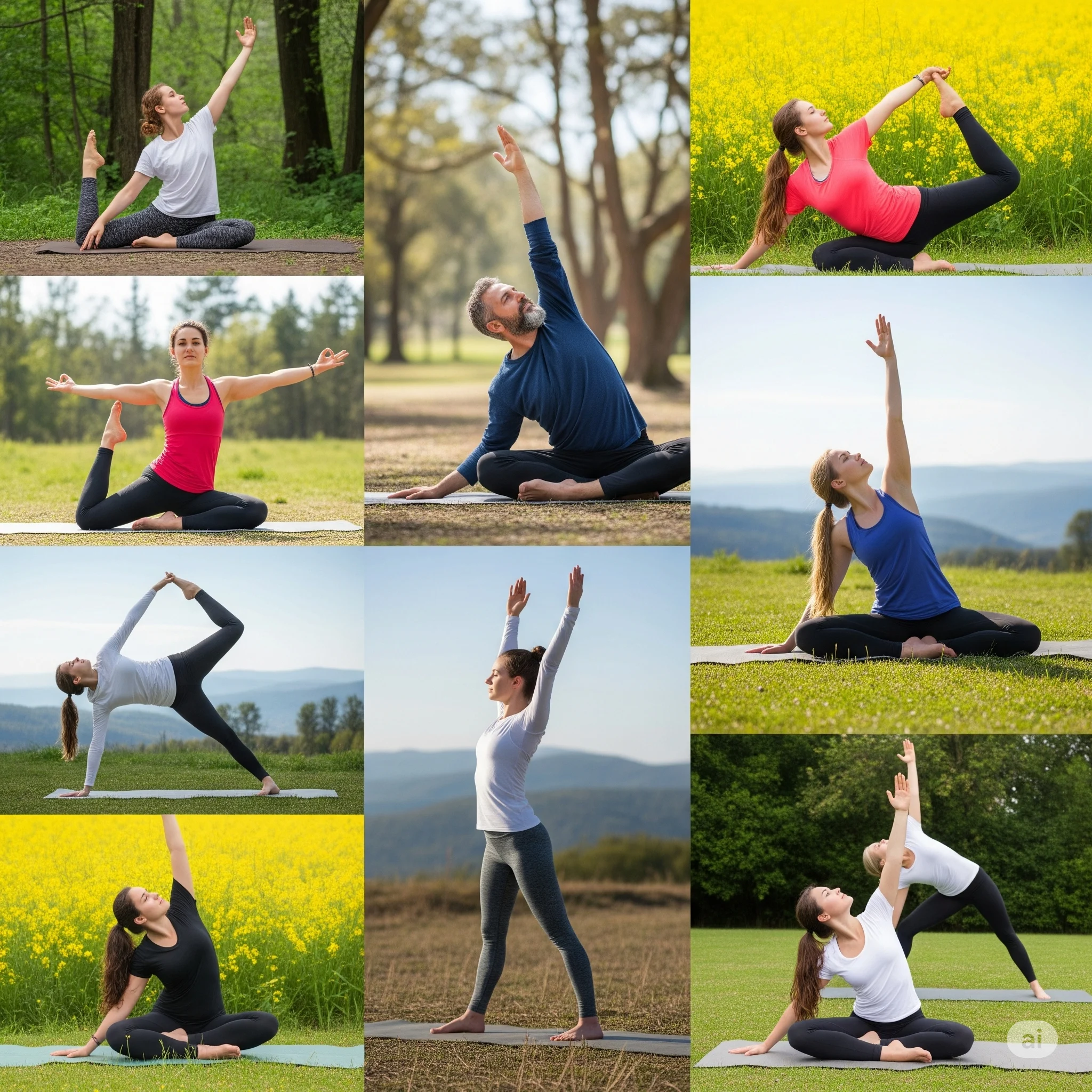On June 21, people all around the world gather to celebrate International Yoga Day, a tribute to an ancient practice that has transformed millions of lives through its message of health, balance, and inner peace. Yoga, which originated in India over 5,000 years ago, is far more than a set of physical exercises. It is a way of life—a practice that unites body, mind, and spirit.
Declared by the United Nations in 2014, International Yoga Day serves as a global platform to raise awareness about the immense benefits of yoga and encourage its adoption across all walks of life. In today’s fast-paced and stressful world, yoga offers a much-needed refuge, helping individuals find calm, develop strength, and reconnect with themselves and the world around them.
The Origins of International Yoga Day
The idea for a dedicated day to celebrate yoga was proposed by Indian Prime Minister Narendra Modi during his speech at the United Nations General Assembly on September 27, 2014. He emphasized yoga’s role as an “invaluable gift of India’s ancient tradition” and highlighted how it promotes harmony between humans and the natural world.
In response to his proposal, the United Nations passed a resolution on December 11, 2014, declaring June 21 as the International Day of Yoga. The date was chosen for its significance as the summer solstice, the longest day of the year in the Northern Hemisphere. This day holds spiritual importance in many cultures and marks a transition in the earth’s relationship with the sun—a symbol of light, energy, and life.
The first International Yoga Day was celebrated on June 21, 2015, and witnessed participation from over 177 countries, setting a Guinness World Record for the largest yoga lesson conducted in one place.
Understanding Yoga: Beyond Exercise
Yoga is derived from the Sanskrit word “Yuj,” meaning “to unite.” It symbolizes the union of body and consciousness, as well as individual and universal existence. Traditionally, yoga includes eight limbs, known as Ashtanga Yoga, as described by the sage Patanjali in the Yoga Sutras.
These include:
- Yama
- Niyama
- Asana
- Pranayama
- Pratyahara
- Dharana
- Dhyana
- Samadhi
While modern yoga often focuses on physical postures and fitness, the original philosophy of yoga encompasses spiritual, mental, and emotional aspects. It teaches self-control, awareness, inner strength, and compassion.
The Benefits of Yoga
Yoga has gained immense global popularity, not just because of its rich heritage but also due to its wide-ranging health benefits, which have been proven through scientific studies and personal experiences. Here are some major advantages:
1. Physical Health
- Enhances flexibility, muscle strength, and posture
- Boosts respiratory and cardiovascular health
- Aids in weight management
- Improves digestion and immunity
- Helps manage conditions like diabetes, arthritis, and hypertension
2. Mental Health
- Reduces stress, anxiety, and depression
- Enhances focus, clarity, and mental stability
- Promotes emotional regulation and mindfulness
- Helps in treating insomnia and fatigue
3. Spiritual Growth
- Increases self-awareness and a sense of inner peace
- Encourages ethical living and compassion
- Helps individuals find deeper meaning in life
The theme of International Yoga Day 2025
Each year, International Yoga Day is celebrated with a theme that guides global events and discussions. The theme for 2025 is “Yoga for Harmony and Healing.”
This theme emphasizes yoga’s role in achieving the following:
- Holistic healing of the mind and body
- Emotional well-being in a fast-changing world
- Community unity by bridging cultures and ideologies
- Peaceful coexistence with nature and society
Given the modern world’s challenges—rising mental health issues, environmental problems, and lifestyle diseases—this theme promotes yoga as a powerful solution for both individuals and communities.
Global Celebrations and Participation
International Yoga Day is now celebrated in over 190 countries, with diverse programs that reflect the richness of yoga traditions.
In India:
India, as the birthplace of yoga, hosts massive yoga sessions in iconic places like Kolkata’s Victoria Memorial, Delhi’s Rajpath, and Mysore Palace. The Prime Minister and other leaders often lead national events, and yoga gurus hold special sessions across the country.
Across the World:
- In New York, yoga is performed in Times Square.
- In China, yoga marathons are held in major cities.
- In Australia, early morning beach sessions are a popular activity.
- In the UK, USA, and Europe, community centers and schools organize yoga awareness programs.
Embassies, schools, universities, corporations, and health organizations also actively participate through virtual workshops, wellness seminars, and social media campaigns.
Yoga as a Way of Life
While one day is marked to celebrate yoga, its true power lies in daily practice. Yoga is not just what we do on the mat—it’s how we breathe, think, and act. To truly benefit from yoga, individuals are encouraged to adopt it as a lifestyle that includes:
- Healthy eating habits (such as sattvic diet)
- Mindful living—being aware of thoughts and actions
- Discipline and self-reflection
- Compassion and non-violence
It’s a path toward becoming more balanced, centered, and joyful—qualities the world needs today more than ever.
Yoga in the Digital Age
In recent years, especially during the COVID-19 pandemic, yoga has seen a surge in popularity through digital platforms. Online classes, mobile apps, YouTube tutorials, and global livestreams have made yoga accessible to people of all ages worldwide.
This accessibility has helped eliminate barriers such as location, age, and physical limitations. Now, yoga reaches children, older people, and those with disabilities—showing that it truly belongs to everyone.
Conclusion
International Yoga Day is more than a celebration. It serves as a powerful reminder of the ancient wisdom that remains relevant in our modern world. Yoga is not confined to a particular culture, religion, or country—it is a universal gift meant for all of humanity.
As we step into a future shaped by technology and rapid change, yoga offers a grounding force—a way to reconnect with our inner selves and with nature. Whether practiced for physical health, mental well-being, or spiritual growth, yoga remains a beacon of light and transformation.
So, on this June 21, take a moment to unroll your mat, take a deep breath, and join the millions across the globe in honoring a practice that unites us all.
Namaste.

